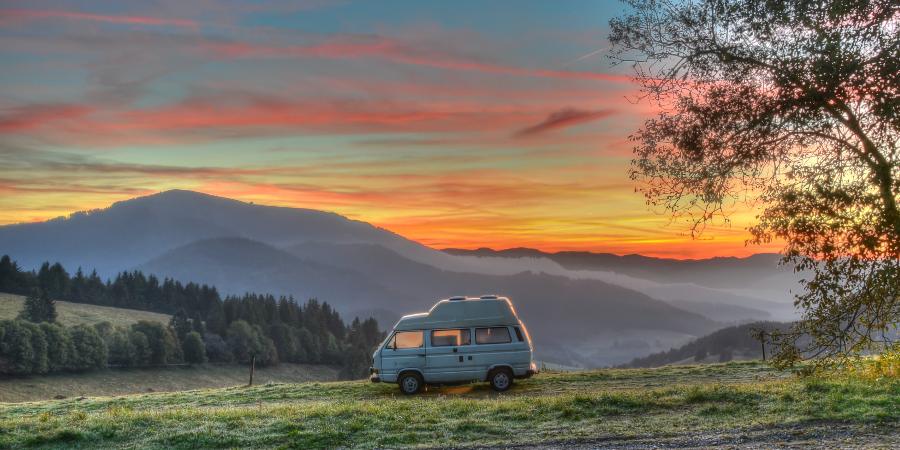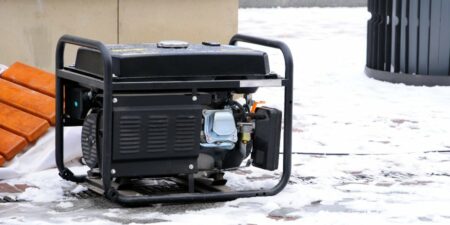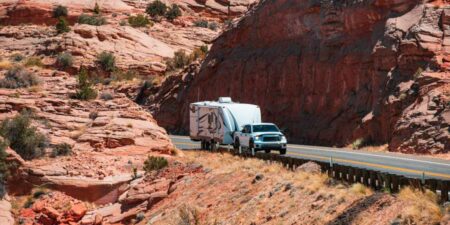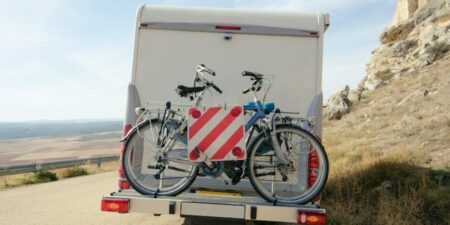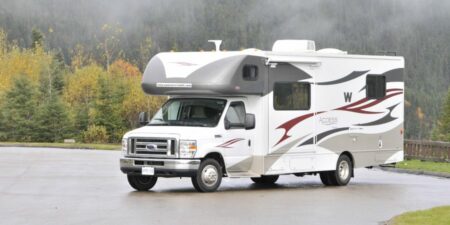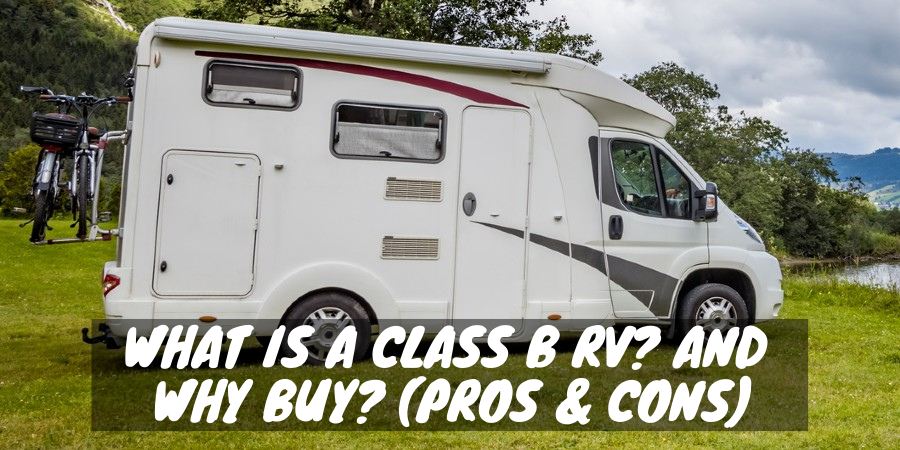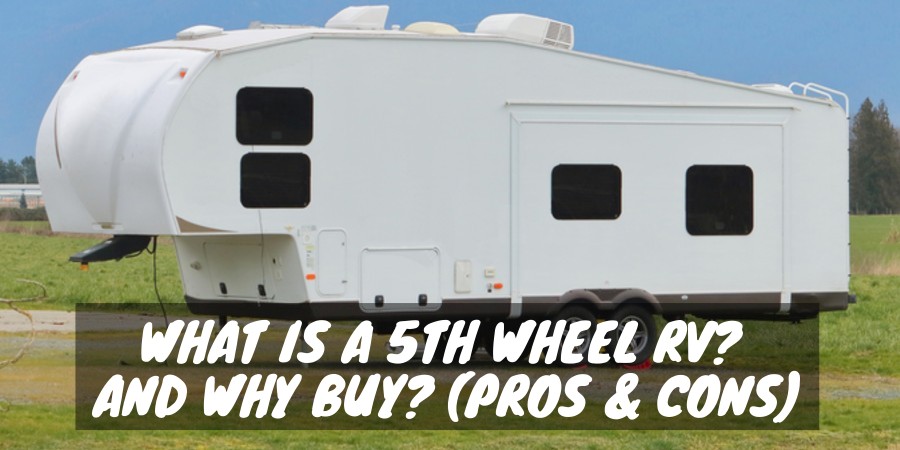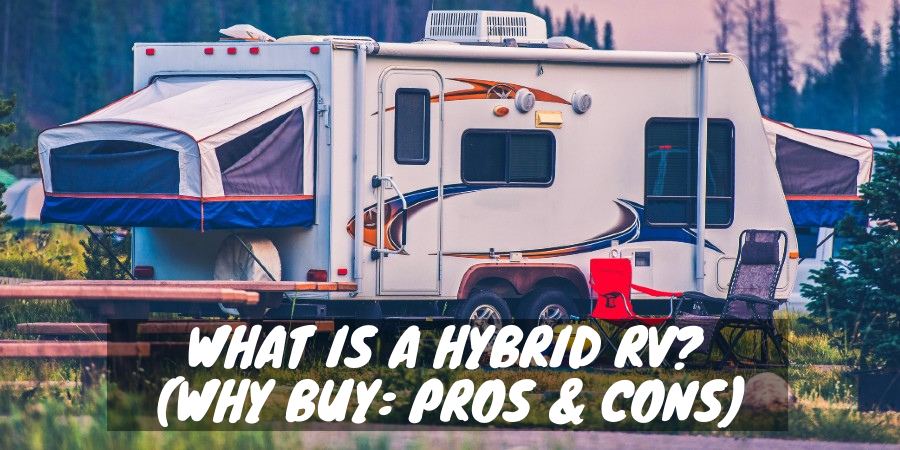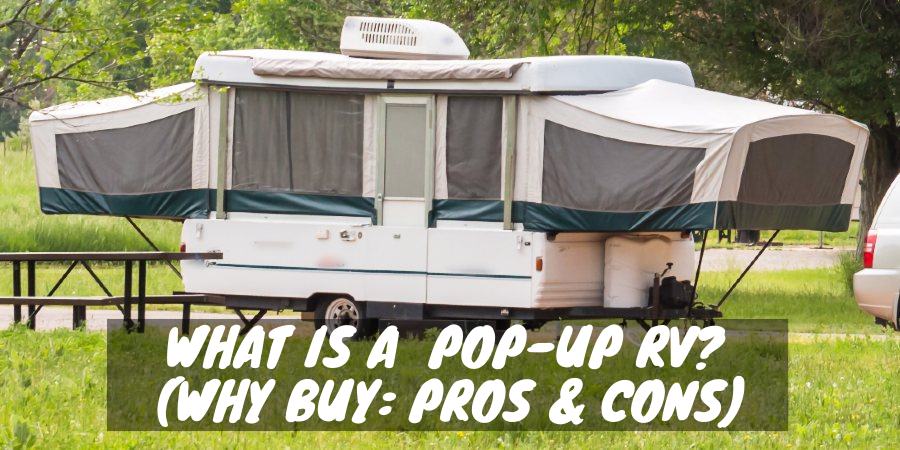RV camping lets you visit the outdoors with the conveniences of home. Recreational vehicles (RVs) are as simple as a tent trailer or as luxurious as a large motorhome.
No matter what you choose, RV camping is fun. RVTroop.com shows you how to travel more and spend less on RV camping.
Recreational Vehicles
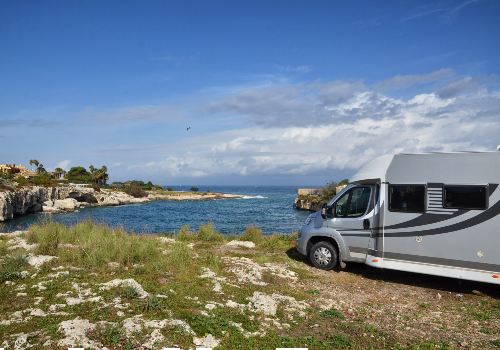
Welcome to RV camping! Ten million households in the U.S. now own RVs — and the number grows by about half a million a year (Source: RVIA).
RVs combine transportation and temporary living quarters for travel, camping, and recreation. RVs are motorized (motorhomes) or towable (travel trailers) with a wide variety of each.
They include Classes A, B, and C motorhomes and truck campers as well as conventional travel trailers, fifth-wheel trailers, folding camp (tent) trailers, and park model (semi-permanent) trailers.
RV campers also include sport-utility vehicles and pickup trucks used to transport tents and other camping gear.
New RVs range in price from $6,000 (folding camp trailers) to $500,000 or more (largest motorhomes). Used RVs can be purchased for much less based on age, condition, amenities, and (for motorized) mileage.
Options include slide-out rooms and even drop-down decks and ramps. Popularity is growing for restored classic RVs as well as modern retro-design RVs.
RV Camping

Who uses RVs? Your RV neighbors include weekenders, retirees, road workers, and even full-timers. Some use RVs for family vacations while others are “snowbirds” who seasonally move to moderate climates.
A few are the mobile homeless. All have similar goals: travel more and spend less.
Where do they camp? There are more than 18,000 public and privately-owned campgrounds nationwide. Some are destinations while others are stop-overs on the way to destinations.
They also camp in designated areas on the Bureau of Land Management (BLM) or other federal lands. Amenities range from a flat spot with no hookups (called boondocking or dry camping) to luxury RV resorts with all services as well as swimming pools, playgrounds, and golf courses.
RV Systems
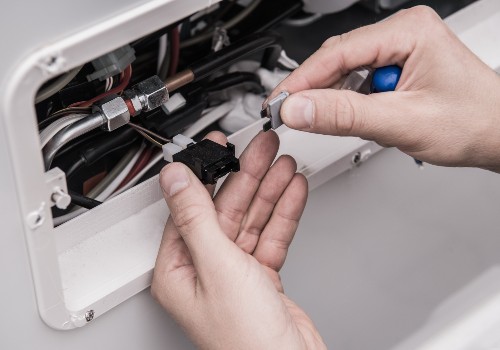
All RVs have one or more of the basic camping systems: electricity, water, sewer. Some are simple while others are more complex, ranging inconvenience from camping to glamping. RV Electrical Systems include 12-volt DC and often 120-volt AC power.
RV Water Systems include fresh water plumbing (from a pressurized exterior water faucet) or onboard freshwater tank (with a 12V water pump).
Waste water is held in a black water tank (sewage) or gray water tank (sinks and shower) until dumped at a campground or dump station.
Want to Connect With a Community of Over 1,078 RV Enthusiasts?
RVs can include other systems depending on the needs/wants of the owners. Electricity can be provided by an RV Generator or Solar Power System, both especially popular with those who dry camp.
Electricity is changed from 120V to 12V and 12V to 120V with RV Converters and Inverters. RVs also can include cable or satellite connections for television, radio, and internet wifi service, popular with longer-term and full-time RVers.
Frugal RV Tips
RVTroop.com helps RVers travel more and spend less. I worked in the RV industry building travel trailers and truck campers in the 1960s and built my first RV (nicknamed our “hippie van”) in the 1970s.
Since then, we’ve owned, traveled in, and maintained numerous travel trailers including a fifth-wheel trailer as well as two motorhomes while raising a family.
Our latest is a Class B motorhome, a van camper, that fits our semi-retirement travel goals.
RV Troop is my attempt to share what I’ve learned and enjoyed about RV camping. Besides the many articles on this website, here are some of my frugal RV tips:
- When buying a used RV, check the date of manufacturer stamped on the tire sidewall; depending on the type, they should be no older than 7-10 years.
- Folding camp trailers are the least expensive and easiest to tow, but are not sufficiently insulated for cold-climate camping.
- Class C motorhomes are a compromise offering medium-size families or extended-stay vacationers both space and agility.
- Make sure your generator has a spark arrestor if using it in a national forest or where a brush fire could start if the generator backfires.
- Many RV manufacturers recommend that you disconnect a 12-volt battery from the unit during long periods of unuse because propane and carbon monoxide alarms as well as clocks can slowly drain battery power.
- If electricity goes out in your RV, check circuit breakers and fuses inside the RV to see if they need to be reset or replaced. (Keep an extra set of fuses in your RV.)
- At least once a season, remove the propane furnace cover and clean out any cobwebs, debris, or critter nests to make sure they don’t catch fire when the heating element is turned on.
- To conserve on RV water, cook in coated cookware that is easier to wipe out. Also, use paper towels to wipe dirty dishes before washing them.
- If you dry camp at casinos (typically free!), first check in with casino security. Ask a host or employee at any casino entry for a security officer. “Where can patrons park RVs overnight safely?” If allowed, most security officers will direct you to the preferred location. They may even offer you patron coupons for food or gaming.
- Remember that the weakest link in the vehicle chain may be the safety chains. Make sure they are rated sufficiently to hold the trailer if it becomes detached from the towing vehicle.
- If traveling out of state or on a long trip, make sure you have any pet health records with you.
- To save on camping laundry, minimize what you wear. Camping in warmer climates means less clothes to get dirty.
You can get my latest RV tips every week by joining my frugal RV tips Facebook group.
Thank you for visiting!
Frugal Living Tips and Tricks (Video)
"Man cannot discover new oceans unless he has the courage to lose sight of the shore."
-- Andre Gide

